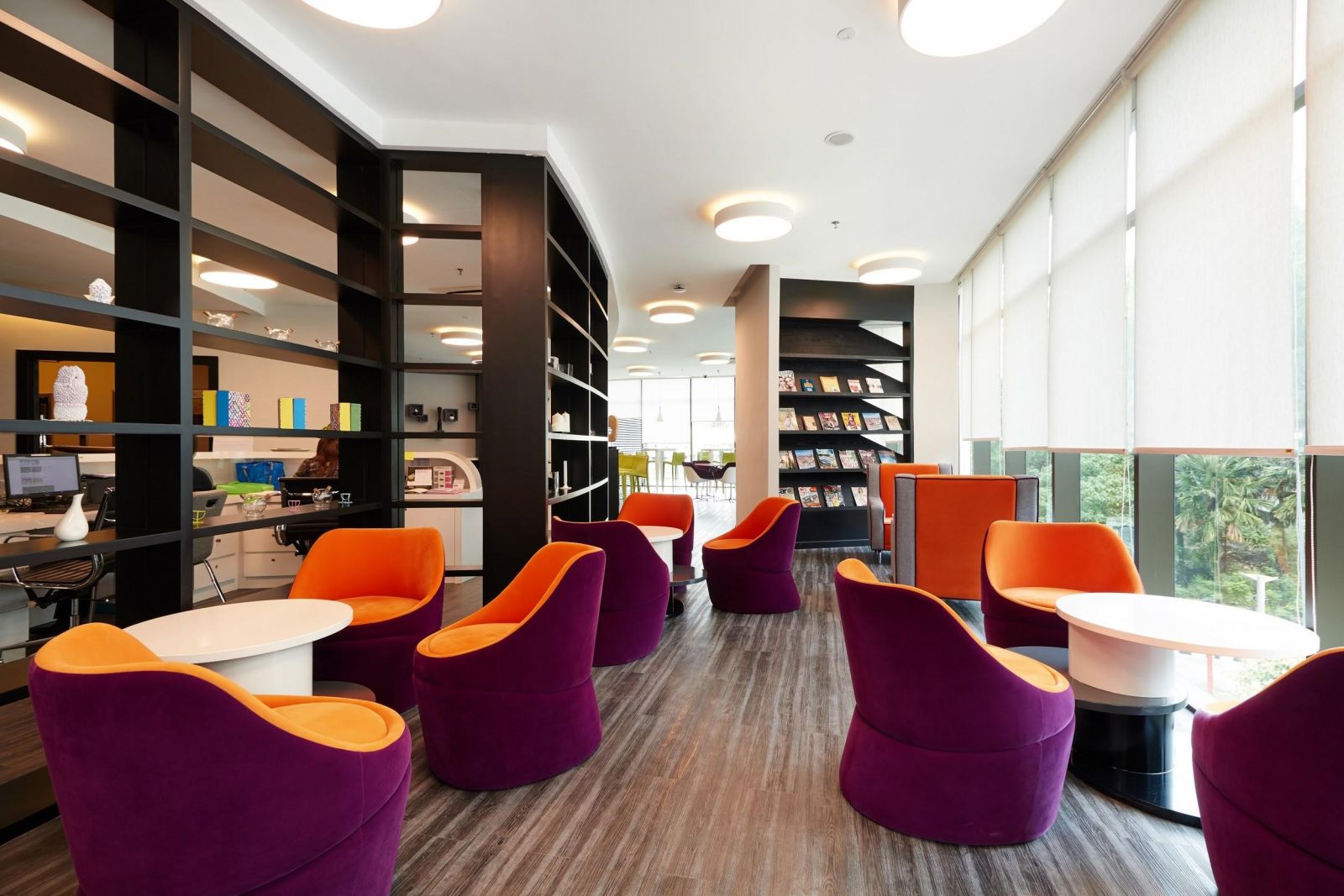Coworking in Southeast Asia: Page 2 of 2
By Nicole Adarme October 25, 2016

The vast and diverse market
The work setting offered by coworking is by no means exclusive or beneficial only to tech startups.
The advantages reach much further than the highly rated collaborative atmosphere and professional environment - which in themselves are already valuable aspects in a workspace.
Collaboration with people of different backgrounds and with businesses of different industries gives companies diverse insight, a small market to test products on, and a versatile supply of resources to tap into when support is needed.
Networking is also built into the workspace! While this is indeed valuable for startups, the value extends to entrepreneurs, SMEs, and multinationals as well.
The professional work environment boasted by coworking spaces is not just for show. According to Deskmag, 71% of coworkers feel more creative and 62% see improvement in the quality of their work in coworking spaces.
In addition to these rather qualitative benefits, coworking also includes more concrete advantages which, in Southeast Asia, tend to be more effective selling points for this relatively new kind of workspace.
The strongest of these concrete points is the cost saving.
According to FlySpaces’ data, businesses in Southeast Asia can save 18% to 26% in a coworking space where higher rent is offset by savings on design, set-up, administration, maintenance and occupancy costs.
The second point is flexibility - with a short-term contract, businesses are able to scale as needed. They are able to keep more efficient cash-flow and they are able to maximize the utility of space they’ve rented.
The third concrete advantage is the availability of office amenities. As new age serviced offices, coworking spaces offer all the traditional services along with a few new gadgets depending on the space. And fast internet is priority number one. As a result, all coworking experiences are plug and play experiences. Businesses only need to plug in their machinery and get started.
These workspace benefits are applicable to a wide range of businesses, including entrepreneurs, startups and SMEs that make up 95% of all businesses in the region.
Adding to these market segments, there are 10 million freelancers in Southeast Asia, projected to make up 40% of the workforce by 2020.
Extending past these markets, coworking has successfully begun to attract multinationals and players in the financial sector.
This can be seen by HSBC’s recent acquisition of 300 seats at WeWork’s Causeway Bay location in Hong Kong.
Emergent Research ensures that growth will not be limited to the Southeast Asian region however. They estimate that 3.8 million people will be working in coworking spaces by 2020, a number quadruple the 976,000 present today.
The millennial generation has instigated a veritable shift in career perceptions and preferences.
“Whereas older generations aimed to climb the corporate ladder, recent years have seen the rise of entrepreneurship - and this entrepreneurial mindset embraces the ideals of coworking because of the savings, flexibility and community” observes Gabrielle Pratte, manager of one of Manila’s biggest coworking spaces, PenBrothers. Emergent Research ensures that growth will not be limited to the Southeast Asian region however. They estimate that 3.8 million people will be working in coworking spaces by 2020, a number quadruple the 976,000 present today.
The millennial generation has instigated a veritable shift in career perceptions and preferences.
“Whereas older generations aimed to climb the corporate ladder, recent years have seen the rise of entrepreneurship - and this entrepreneurial mindset embraces the ideals of coworking because of the savings, flexibility and community” observes Gabrielle Pratte, manager of one of Manila’s biggest coworking spaces, PenBrothers.
This shift in career ideals has certainly extended to a change in preferences regarding where, when and how work gets done.
Coworking is suitably positioned to address this change as a workspace that has been designed to be conducive to flexible work arrangements, and as an environment that fosters community.
Our regional identity
Coworking players in Southeast Asia are paving their own paths incorporating some of the region’s most intrinsic values in their spaces.
Wan Sing Kong explains that JustCo aims to “create an environment that promotes creativity, motivates individuals, and inspires growth.”
One of its foremost priorities is to foster the size, diversity and engagement of its community. As Singapore’s largest coworking space in terms of both floor area and membership, JustCo hosts businesses of several functions and industries.
“Whatever stage your business is at, help and support should be available within the community. Many companies are open to collaboration or partnership, and they will all be within reach of members of JustCo.”
To facilitate engagement, JustCo holds numerous networking events; it hosts diverse workshops that are relevant to its members’ businesses; it encourages collaboration in its common spaces; and it also curates message boards and partnership or collaboration invitations on its internal app - a true example of Singaporean efficiency and effectiveness.
Hong Kong’s Urban Serviced Offices in contrast, focuses on design and sustainability, as well as health and wellness. In a city such as Hong Kong, where space is extremely valuable, Urban sees design as a core part of its business. It is essential that its space be well-designed both in terms of practicality and conduciveness to optimal working conditions.
Keeping sustainability in mind, the serviced office and coworking space maintains initiatives for reuse and recycling.
For its members’ health and wellness, Urban offers green tea and lemon water in its pantries; it incorporates ‘salad mondays’; it holds periodic yoga classes in its event space; and it extends gym memberships to its community. “The idea is to integrate work-life balance by bringing balance into work,” says Evan Moore.
From spaces in Singapore that host daycare services for coworking parents, to spaces in Manila that offer its members craft beers at 5pm, to spaces in Kuala Lumpur that fill its common spaces with bean bag chairs - coworking in Southeast Asia proves to be as unique and diverse as the region itself.
Nicole Adarme is the marketing manager of FlySpaces
Related Stories:
How digital workplaces can level the playing field for SMBs
FlySpaces, the ‘Airbnb of office spaces,’ lands in KL
The Hub Singapore moves into new space, promises more initiatives
For more technology news and the latest updates, follow us on Twitter, LinkedIn or Like us on Facebook.


